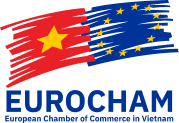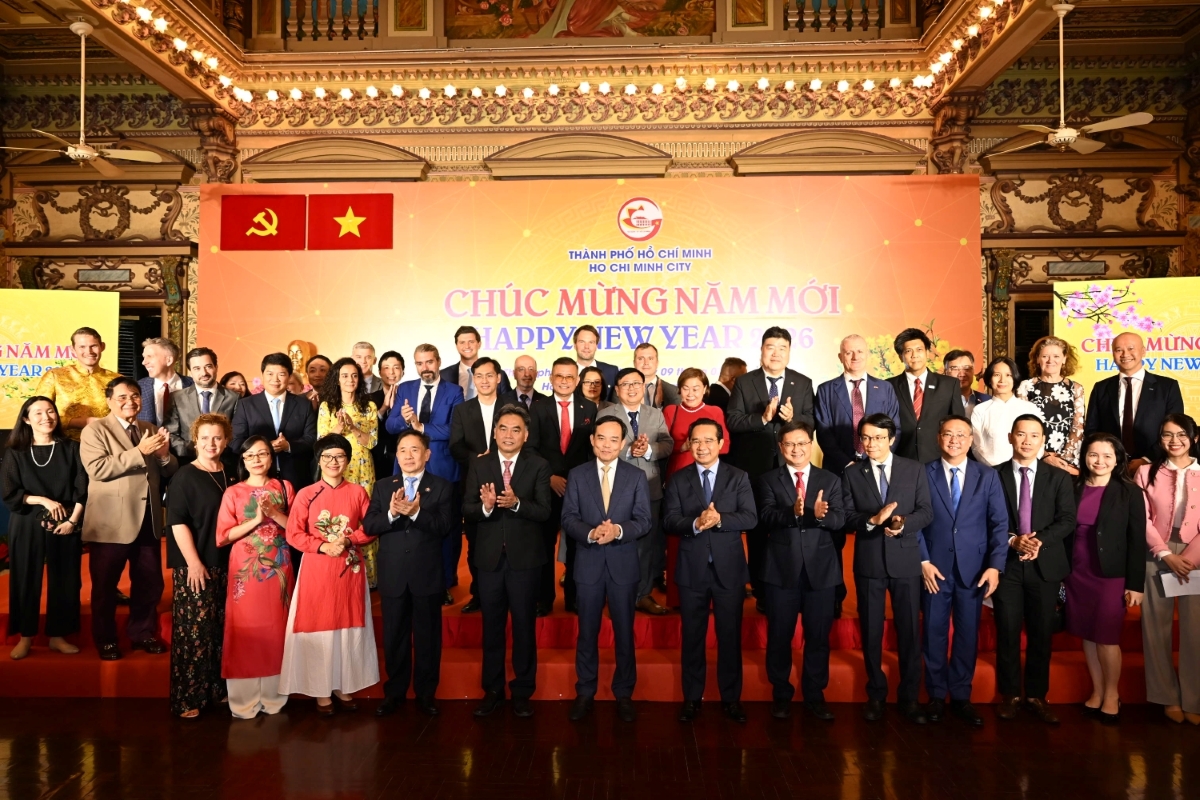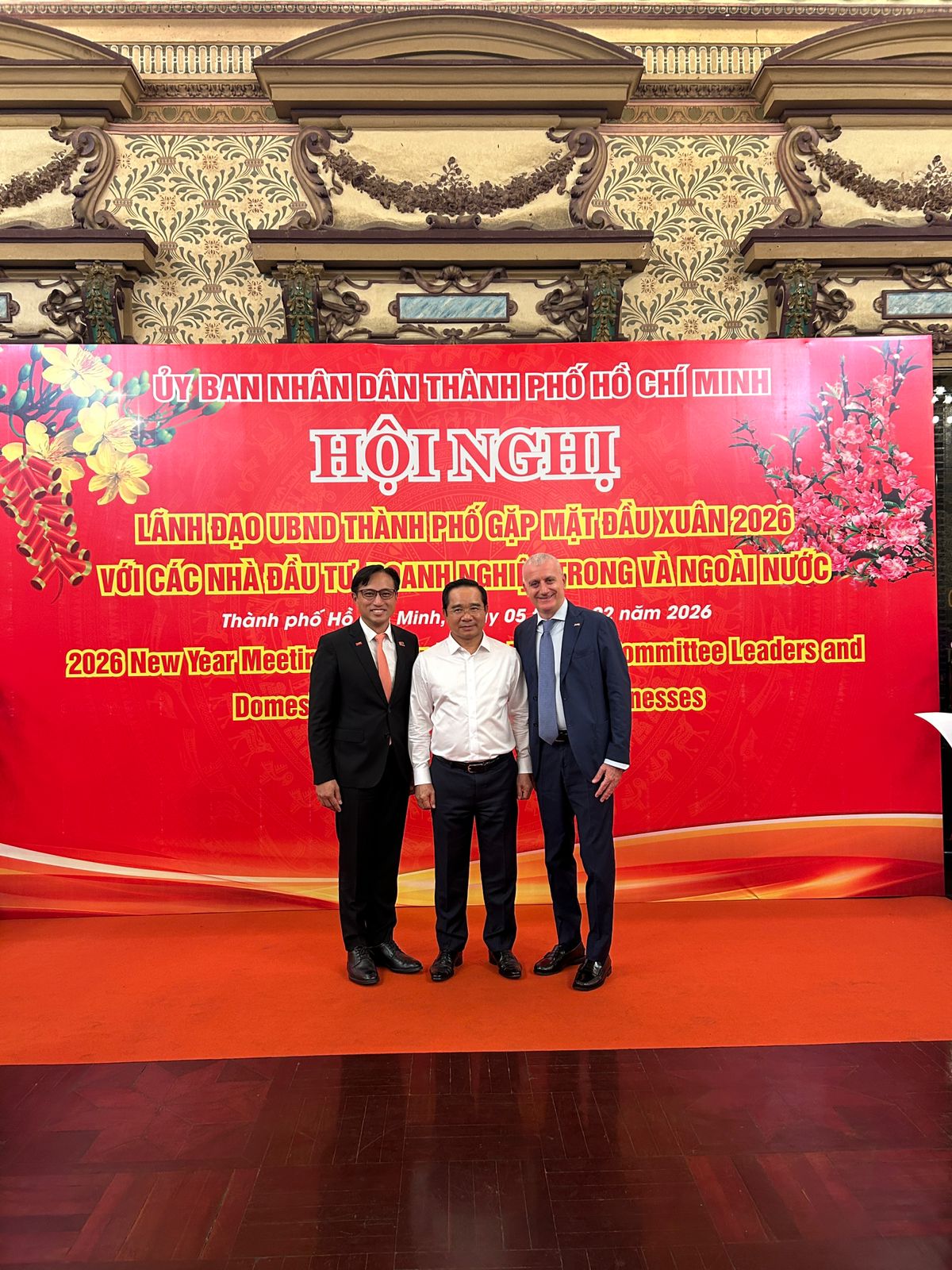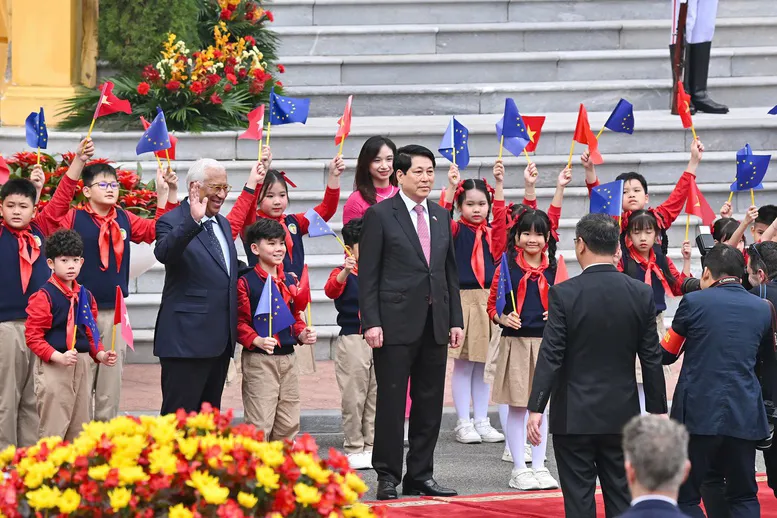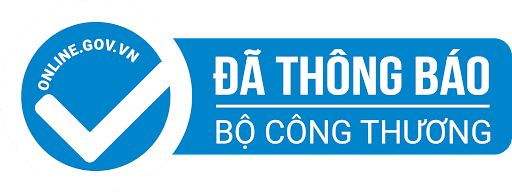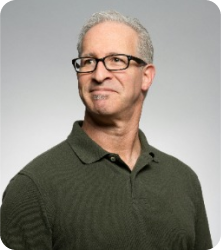On Thursday the 19th of September 2019, leading figures from the Government, domestic and foreign business communities, and Vietnam’s agricultural sector gathered in Hanoi for a major event to discuss the future of farming in Vietnam.
Organised by the European Chamber of Commerce in Vietnam (EuroCham), the Ministry of Agriculture and Rural Development (MARD), and the Vietnam Chamber of Commerce and Industry (VCCI), the “Vietnam-EU Forum on Sustainable Agriculture – Agriculture 4.0: Key to the European Market” welcomed more than 180 distinguished guests including H.E. Mr. Le Quoc Doanh, Vice Minister of MARD, Mr. Hoang Quang Phong – Vice Chairman of VCCI, H.E. Ms. Elsbeth Akkerman, Ambassador at the Kingdom of the Netherlands to Vietnam, Mr. Carsten Schittek, Head of Trade and Economic Affairs at the EU Delegation to Vietnam, Dr. Albert T. Lieberg, FAO Representative in Vietnam.
The conference, taking place at the Melia Hanoi, aimed to develop the export of traceable, certified, and safe agricultural products from Vietnam to the European market. To achieve this, it brought Vietnamese decision makers, farmers, and exporters together with leading European companies’ representatives who presented their technical expertise and innovative solutions to improve production capacity and quality of Vietnam’s agriculture. These were also showcased at a simultaneous exhibition, where attendees can see European innovation and Vietnamese produce first-hand.
EuroCham Vice Chair Ywert Visser delivering opening speech
The event began with opening remarks from Mr. Ywert Visser, Vice Chairman of EuroCham, and Mr. Hoang Quang Phong, Vice Chairman of VCCI. Guests then listened to the keynote speech from H.E. Mr. Le Quoc Doanh, who presented the Government’s action plan for Vietnam’s agriculture in a competitive market. Following the vision of the Vietnamese Government, H.E. Ms. Elbeth Akkerman, Ambassador of the Netherlands to Vietnam and Mr. Carsten Schittek, Head of the Trade and Economic Affairs Section, Delegation of the European Union to Viet Nam discussed how EVFTA create opportunities in the EU for the Agriculture Sector. Ms. Nguyen Cam Trang, Deputy Director General of MOIT’s Agency of Foreign Trade, then shared an overview of agricultural exports in Vietnam.
H.E. Mr. Le Quoc Doanh Vice Minister, Ministry of Agriculture and Rural Development
The forum provided participants with innovative solutions from high-level representatives of European enterprises, with presentations from Bayer and ABB on how digital technology can support sustainable agriculture in Vietnam. Two panel discussions rounded-off the event, discussing on the EVFTA and Agriculture 4.0. These sessions featured a range of participants, including representatives of Nedspice Processing, Control Union Vietnam, NS Bluescope Lysaght Vietnam, I. Schroeder KG, Les Vergers du Mekong, and IDH Vietnam.
Vice Minister Le Quoc Doanh and participants visiting showcase of solutions to develop sustainable agriculture and agriculture 4.0
Commenting on the event, Nicolas Audier, Chairman of EuroCham, said: “This forum could not have come at a better time. We know that Vietnam’s agricultural sector will be one of the biggest winners from the EVFTA, as a reduction in tariffs will increase demand and boost exports to Europe’s large, high-spending consumer market. However, the EU has very high standards for food imports. So it has never been more important for European enterprises and Vietnamese producers to come together, learn from each other, and help develop a world-leading agriculture sector in Vietnam with safe, certified, and traceable produce. This event will help to develop stronger relationships between the Vietnamese and European business communities and, in doing so, help to unlock the full potential of the EVFTA.”
Kohei Sakata, Customer Experience and Digital Strategy Head for Asia Pacific Region, Bayer Crop Science said: “By nature, agriculture utilises other natural resources such as water, land and the soil. While operation is increasing, available land is decreasing. In this context, sustainability is very important. In Asia particularly, the majority of farmers including Vietnam are smallholders who have less than one or two hectares accounting for 70% of the consumption of agricultural production. It is clear that our digital solutions, have offered great opportunities to accelerate the sustainability in agriculture. It is a critical agenda of Bayer to help smallholder farmers to produce more with less resources.
The company’s ambitions to bring those digital solutions to enhance smallholder farmers’ technical capabilities with digital advisory to optimize their cultivation method and overcome climate challenges and disease/pest stress to achieve higher yield, quality, and profit. “As a world leading agriculture company, Bayer has the global mission to set a standard in sustainability. With our innovation and digital solutions, we aim to making agriculture or farming itself much more professional and efficient, and also more attractive to the younger generation. Thanks to new technologies available now, we believe that we can really help to support the generation changes in agriculture to enable a more sustainable food supply chain to feed the growing world population.”
Dr. Brian Hull, Country Managing Director of ABB in Vietnam said: “Vietnam is well placed in the agriculture sector due to its abundant natural resources and favorable climate. The country is currently the second biggest ASEAN trade partner of the EU. However, Vietnamese agricultural products are still facing many boundaries, especially in terms of technology, to satisfy strict international standards and reach the productivity levels, which results in underachievement of the sector.
Our world is undergoing transformational technological change. The Fourth Industrial Revolutions is profoundly influencing the way we power our societies, produce our goods, as well as how we work, live and move. Vietnam's agriculture and food industry in particular are shifting dramatically and under constant pressure to adapt and evolve to meet growing diversity, especially that of highly demanding markets such as Europe. This drives the requirements for improved hygiene and quality and variety, all whilst maintaining a commitment to safety, traceability and sustainable use of natural resources. Working closely with food manufacturers worldwide, ABB focuses on power, automation and digital solutions that address the critical issues in every area of operation, enabling manufacturers to reach full production potential and be prepared to tackle the challenges of tomorrow. We are committed to a sustainable agri-food future, walking hand in hand with Vietnamese food manufacturers to help them improve product quality, enhance food safety and more efficiently use their production assets, through our industry-leading digital solutions.”
Mr. Huynh Tien Dung, IDH Vietnam Country Director said: “IDH The Sustainable Trade Initiative is a Foundation convening companies, CSOs, governments and others in public-private partnerships. Through its partnerships, IDH aims to drive sustainability from niche to norm in mainstream markets, delivering impact on the Sustainable Development Goals. Sustainability commitments are topping the agendas of supply chain actors. Yet no efficient option currently exists to guarantee supply of commodities that fulfil these commitments at scale. IDH and partners are now developing a new market mechanism that allows sourcing from sustainable landscapes: Verified Sourcing Areas (VSAs).
Verified Sourcing Areas (VSAs) is a new area-based mechanism to accelerate production and uptake of sustainable commodities globally. The objective is to verify the sustainability of an entire jurisdiction (e.g. municipality or district and later province and state), so it’s no longer necessary to verify each producer, mill or commodity individually. This way, sustainability targets related to forest and peat protection, labor, land tenure, governance and transparency can be much more ambitious in scale and impact. It helps companies source large volumes of commodities in line with their sustainability commitments at a competitive scale and price. Through VSAs, entire production areas can be connected to global markets. In these areas, local actors drive sustainable development and receive direct support and incentives by global markets for doing so. VSAs reward the sustainability of whole regions and have impact on multiple sustainability targets at once. In Vietnam, IDH has just started piloting VSA in Lam Dong province.”
Richard de Boer, Managing Director of Control Union commented: “As the growth in Vietnam’s Agricultural Sector continues to flourish with new opportunities for trade, so are the demands for clarity in updated regulations or requirements from each market. EVFTA brings forth many opportunities for some old and new players in the agricultural industry to understand applicable standards and requirements for the assurance of safety and quality throughout the supply chain to meet the demands of the EU market. The forum is an avenue to explore and gather insight into the real opportunities and challenges faced today to discuss solutions to bridge the gap for further growth in Vietnam’s agricultural sector.”
Nguyen Cao Tri, President, NS BlueScope Lysaght Vietnam commented: “Vietnam poultry industry has been growing steadily, however, heavily relies on small scale family business which creates inconsistent quality & high cost structure, preventing Vietnamese products to enter high requirement and developed market. Increasing competitive advantage requires a total solution improvement, from the farming (the breed, the feed, the environment of raising up the animals) to the final stage of processing the meat. Lysaght has recently been participating into agriculture segment with different products of shrimp shed, poultry shed – participating in improving the poultry farming with the best quality of agri-shed. Most recently, Lysaght also introduced agri-solar shed which enables investors to maximize the utilization of land resources with the combined functions of renewable energy on top and green-house for veggies planting inside. The solution allows fast installation with high accuracy, minimum maintenance cost and long life cycle, ensures not only high ROI for the investors but also the sustainable energy for the community.”
Click to view
Event photos
Media coverage overview
